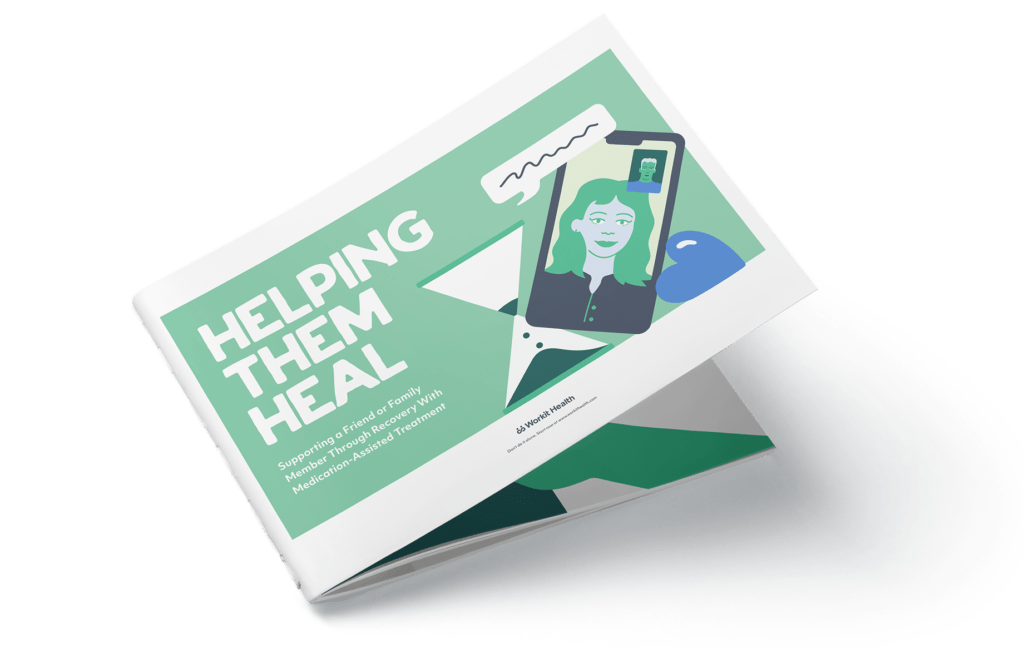Fitness isn’t just about looking good — it can lead to long-lasting mental health benefits. One member of the Workit team shares his personal experience with exercise in recovery from binge eating disorder.
Fitness is often something we think about as a means to get healthy; by “get healthy” we often think of this as losing weight, increasing strength, gaining muscle, and toning up. These can all be very healthy things for your physical health, however the mental health benefits of fitness and exercise are far too often overlooked or passed over like an afterthought.
For years I fought and battled binge eating disorder, an eating disorder that involves ingesting severely large quantities of food to the point of discomfort on a regular basis, as well as several other mental health issues. I battled my rapid increased weight the best way I knew how: intermittent fasting, at times starvation, and overexercising (yes, exercise can be unhealthy as well).
Boost Your Brain Chemicals With Exercise
Several years ago I discovered what exactly binge eating disorder was. The traits and qualities of it were very similar to substance use disorders. After several tries at recovery with support groups and therapy, my knowledge started to click and I started applying these skills. I learned to live a balanced life with fitness and discovered that I was using exercise as a punishment for gaining weight, which led me to despise it. When I learned that I could actually work out for 30 minutes to one hour per day, five to six times per week, versus the four to five hours per day, seven days per week that I was doing it truly changed my life. It really made me fall in love with fitness and love/appreciate myself.
I knew that exercise has great benefits for your mental health, if you apply it in a healthy manner. I researched exercise while in school to become a therapist, seeking alternative methods to assist others with mental health and addiction. It’s not too surprising that I ended up coming to Workit Health. However, because I was still using fitness as a punishment during that time, I really only knew that it could be a fun activity for you if you enjoyed it. I did not realize that it could be a major intervention that could truly enhance your life.
As I continued my research on fitness, I started using it on my clients in various mental health settings. Prior to Workit, I have worked for inpatient treatment centers and IOP programs for substance use disorders (community-based settings for people had a mental health or substance use disorder diagnosis). While implementing regular fitness into their sessions as well as their daily life, the mass majority of my clients reported an improvement to their quality of life and over half of these clients had longer-term success. The majority of these clients also began to speak much kinder of themselves.
The Science Behind Sweating It Out
Throughout our day our bodies are releasing endorphins, a group of hormones secreted within the brain and nervous system and having a number of physiological functions. Endorphins activate the body’s opiate receptors which makes us feel good or stable; however, they are released in small amounts so you do not feel “high” but rather stable. There are two types of endorphins: dopamine and serotonin. Dopamine causes you to feel more alert while serotonin assists with you not falling asleep; the body releases these two chemicals essentially to keep you awake and continuing to perform basic tasks such as cleaning, bathing, dressing, and walking from Point A to Point B. When we work out we can often feel a “Runner’s High”, where we feel euphoric and more than just stable.
“Implementing exercise into your everyday life in recovery not only assists with increasing positive prosocial activities and coping skills but also begins to repair your body from the harmful effects of substance use.”
When we are struggling with substance use disorders or mental health disorders, our bodies cannot naturally produce endorphins like they once did and therefore we often feel tired, sluggish, or even sick (especially in the first few weeks of recovery). Implementing exercise into your everyday life in recovery not only assists with increasing positive prosocial activities and coping skills but also begins to repair your body from the harmful effects of substance use. Certain mental health diagnoses can also mean that the production of endorphins may be halted as well, which can create a double-edged sword for those recovering. Therefore, the production of these endorphins can be vital. To sum this part up, think of endorphins as our “feel good” hormones; if we do not have them, then we do not feel so great.
Making Exercise A Healthy Habit
In order to make these a part of your life, there are four things that I have personally identified to make this a healthy BALANCED habit.
-
Pick what you like
There is no sense in doing something if you hate it, so why start? I’m sure there is something you can do that is active that you enjoy and other things that you cannot stand. For instance, I cannot stand running. It has taken me several years to jog a mile, which if I must say I am very proud of; however if that is where my fitness journey was going to begin especially for increasing my happiness you can forget about it. I did find that I liked walking and going to the park to workout. Something about being outside made it more fun for me. To this day, I have a backpack that I carry with me with resistance tubes, exercise dice, and cones that I can use at any park if I decide “you know, today I do not feel like being inside”. I also love learning about boxing and MMA as part of my workouts. If that is not your thing, do not do it but find something you love.
-
Schedule it
Make time for yourself. Fitness can be just like any other appointment you have. Put it on your calendar and stick to it. Make it a commitment. I would also encourage you to do this with any other self-care tasks for yourself. It sounds silly to schedule self-care, but it really works especially if you were like me and not in the habit of doing it to begin with.
-
Focus on the “non-scale victories”
This one is more so for those like me who struggle with eating issues, but the same principles apply,. Focus on the mental health benefits you get from fitness, and in turn, the physical benefits will follow along easily.
-
“Workit” every day…but balance it out
Like any other skill, balance is key. As said before, I would overexercise all of the time and stress myself out trying to fit workouts in. Many times I would over-exercise for weeks and then give up on it as I grew resentful of it. Giving myself balance and a break allows me to appreciate and miss fitness. Our bodies with exercise are similar to drug use as well. While exercise is a healthy alternative that can increase your moods with biological benefits, it can also make our bodies used to it much like our bodies got used to drug use. Over time, you will need to exercise more and more to get the same effects as you once did as your body is producing fewer endorphins again as it believes you do not need them. Thankfully our bodies begin production on them a lot faster when we stop exercising than we do when we are getting sober, so those rest days can be a day or two and you are ready to lace up those running shoes again in no time.





